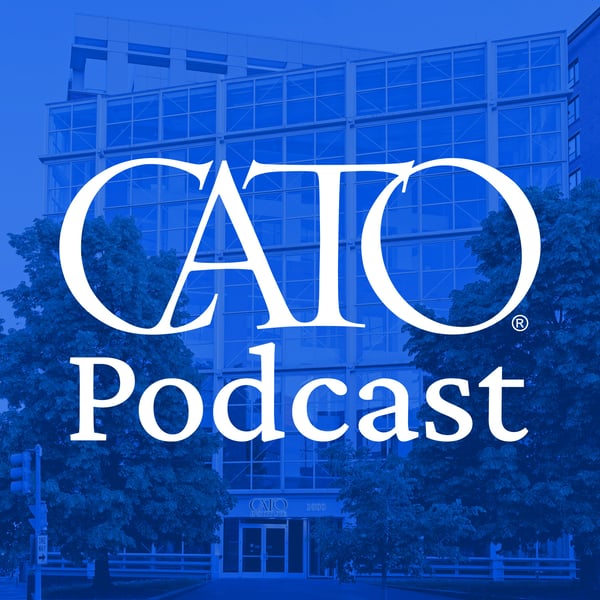Best of Cato Daily Podcast: The United States of Paranoia: A Conspiracy Theory
Cato Podcast
Cato Institute
4.6 • 949 Ratings
🗓️ 27 May 2025
⏱️ 17 minutes
🧾️ Download transcript
Summary
Hosted on Acast. See acast.com/privacy for more information.
Transcript
Click on a timestamp to play from that location
| 0:00.0 | This is longtime Cato Daily podcast host, Caleb Brown. After thousands of episodes over nearly 18 years, |
| 0:05.7 | I've moved on from the Cato Daily podcast, but in the interim, I, along with some of you, have selected some favorites. |
| 0:12.8 | I hope they resonate with our current moment and continue to spark the desire to defend liberty. |
| 0:18.4 | Thank you for listening. |
| 0:21.0 | This is the Cato Daily podcast for Thursday, September 5th, 2013. I'm Caleb Brown. |
| 0:26.6 | Conspiracy theories have a long history, but the Internet age is a veritable golden age of conspiratorial thinking. |
| 0:33.2 | Jesse Walker is book's editor at Reason Magazine and author of the new book, The United States of Paranoia, a conspiracy theory. |
| 0:40.6 | We spoke recently about the book and what gives conspiracy theories currency in popular culture. |
| 0:46.4 | I guess my introduction to conspiracy theories was Robert Anton Wilson and Robert Shea's The Illuminatus Trilogy, |
| 0:52.2 | which for those who haven't read it, sort of wraps up all of the |
| 0:56.1 | great conspiracy theories effectively into one, one grand conspiracy that is... Or a mosaic of conspiracy. |
| 1:03.1 | That's somehow been going for thousands of years. Yeah, I mean, the great thing about that book, |
| 1:07.5 | which is in my book, is that it's a, people sometimes say it treats |
| 1:12.8 | every conspiracy as true. It might be more accurate to say that it treats every way of looking |
| 1:19.7 | at the world as equally true and equally absurd and then sort of sees what they can tease out |
| 1:24.5 | from that. But those two, as particularly Wilson, represent what I |
| 1:29.9 | call in the book, the ironic style of political paranoia, which is not actually, or the ironic |
| 1:35.7 | style of conspiracism, I should say. And that's people who, they're not interested so much in |
| 1:42.3 | talking about conspiracy theories to debunk them or to say, |
| 1:47.2 | hey, this is when I think that is true, although sometimes they might do that on their own |
| 1:51.8 | merits, but just to have fun with them, you know, to explore them like they're this big mutant |
| 1:56.2 | mythology. |
... |
Please login to see the full transcript.
Disclaimer: The podcast and artwork embedded on this page are from Cato Institute, and are the property of its owner and not affiliated with or endorsed by Tapesearch.
Generated transcripts are the property of Cato Institute and are distributed freely under the Fair Use doctrine. Transcripts generated by Tapesearch are not guaranteed to be accurate.
Copyright © Tapesearch 2025.

